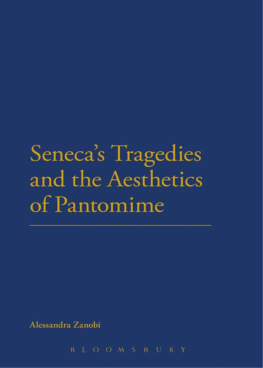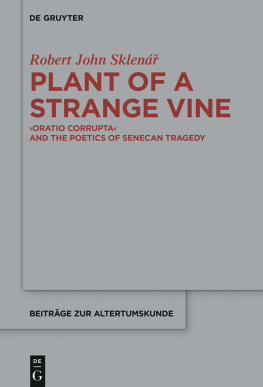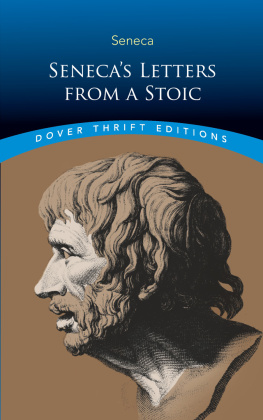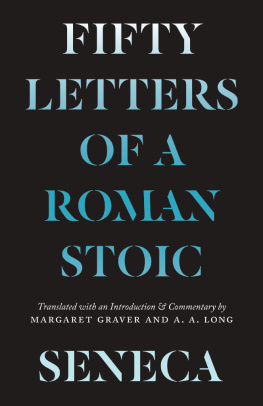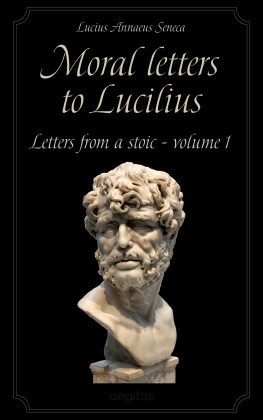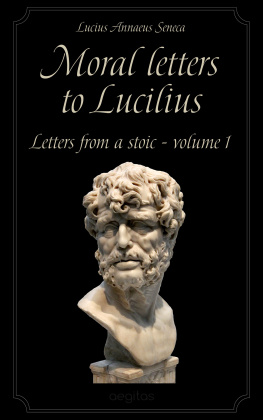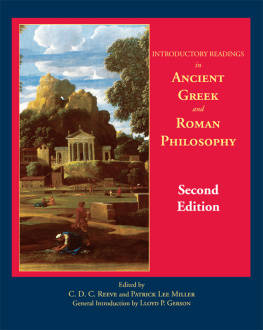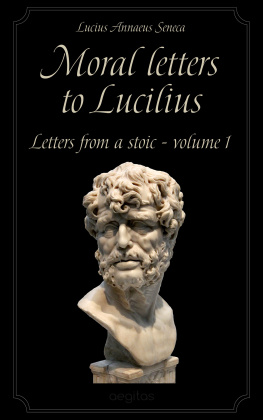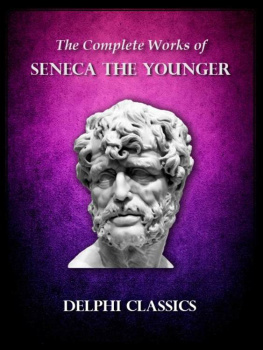
Intertextuality in Senecas Philosophical Writings
This volume is the first systematic study of Senecas interaction with earlier literature of a variety of genres and traditions. It examines this interaction and engagement in his prose works, offering interpretative readings that are at once groundbreaking and stimulating to further study.
Focusing on the Dialogues, the Naturales quaestiones, and the Moral Epistles, the volume includes multi-perspectival studies of Senecas interaction with all the great Latin epics (Lucretius, Vergil and Ovid), and discussions of how Senecas philosophical thought is informed by Hellenistic doxography, forensic rhetoric and declamation, the Homeric tradition, Euripidean tragedy and Greco-Roman mythology. The studies analyzes the philosophy behind Senecas incorporating exact quotations from earlier tradition (including his criteria of selectivity) and Senecas interaction with ideas, trends and techniques from different sources, in order to elucidate his philosophical ideas and underscore his original contribution to the discussion of established philosophical traditions. They also provide a fresh interpretation of moral issues with particular application to the Roman worldview as fashioned by the mos maiorum. The volume, finally, features detailed discussion of the ways in which Seneca, the author of philosophical prose, puts forward his stance towards poetics and figures himself as a poet.
Intertextuality in Senecas Philosophical Writings will be of interest not only to those working on Senecas philosophical works, but also to anyone working on Latin literature and intertextuality in the ancient world.
Myrto Garani is Assistant Professor in Latin Literature at the National and Kapodistrian University of Athens, Greece. She is the author of Empedocles Redivivus: Poetry and Analogy in Lucretius (London and New York, 2007) and co-editor with David Konstan of The Philosophizing Muse. The Influence of Greek Philosophy on Roman Poetry, Pierides III (Newcastle-upon-Tyne, 2014). She has also published a number of articles on Empedocles reception in Latin literature, especially in Ovids Fasti. Her other publications include articles on Lucretius, Propertius, Ovid and the Pseudo-Vergilian Aetna. She is currently working on a monograph on Senecas Naturales quaestiones Book 3 and a commentary of Lucretius De rerum natura 6.
Andreas N. Michalopoulos is Professor of Latin at the National and Kapodistrian University of Athens. He has published extensively on Latin literature of the 1st centuries BC and AD (especially epic, elegy, and drama), he has edited numerous volumes (more recently Dicite, Pierides. Classical Studies in Honour of Stratis Kyriakidis, 2017, with Sophia Papaioannou and Andrew Zissos) and is the author of Ancient Etymologies in Ovids Metamorphoses: A Commented Lexicon (2001), Ovid, Heroides 16 and 17: Introduction, Text and Commentary (2006), and Ovid, Heroides 20 and 21: Introduction, Text and Commentary (2013). His research interests include Augustan poetry, ancient etymology, Roman drama, the Roman novel, and the modern reception of classical literature.
Sophia Papaioannou is Professor of Latin at the National and Kapodistrian University of Athens, Faculty of Philology. She is the author of numerous articles and chapters on Augustan literature (especially epic) and on Roman comedy, as well as two books on Ovid: Epic Succession and Dissension: Ovid, Metamorphoses 13.62314.582, and the Reinvention of the Aeneid (2005); and Redesigning Achilles: The Recycling of the Epic Cycle in Ovid, Metamorphoses 12.113.620 (2007); and a collection of papers on Terence (Terence and Interpretation, 2014). She has published on the reception of Vergil and Ovid in the Late Antiquity across various genres and authors, and one of her current projects includes the tracing of Vergilian and Ovidian influence in the subtext of Nonnus Dionysiaca.
Routledge Monographs in Classical Studies
Titles include:
The Making of Identities in Athenian Oratory
Edited by Jakub Filonik, Brenda Griffith-Williams and Janek Kucharski
Homicide in the Attic Orators
Rhetoric, Ideology, and Context
Christine Plastow
Underworld Gods in Ancient Greek Religion
Ellie Mackin Roberts
Bride of Hades to Bride of Christ
The Virgin and the Otherwordly Bridegroom in Ancient Greece and Early Christian Rome
Abbe Walker
Intertextuality in Senecas Philosophical Writings
Edited by Myrto Garani, Andreas N. Michalopoulos, Sophia Papaioannou
Drama, Oratory and Thucydides in Fifth-Century Athens
Teaching Imperial Lessons
Sophie Mills
The Poetics in its Aristotelian Context
Edited by Pierre Destre, Malcolm Heath and Dana L. Munteanu
Text and Intertext in Greek Epic and Drama
Essays in Honor of Margalit Finkelberg
Edited by Jonathan J. Price and Rachel Zelnick-Abramovitz
For more information on this series, visit: https://www.routledge.com/classicalstudies/series/RMCS
Intertextuality in Senecas Philosophical Writings
Edited by
Myrto Garani, Andreas N. Michalopoulos and Sophia Papaioannou
First published 2020
by Routledge
2 Park Square, Milton Park, Abingdon, Oxon OX14 4RN
and by Routledge
52 Vanderbilt Avenue, New York, NY 10017
Routledge is an imprint of the Taylor & Francis Group, an informa business
2020 selection and editorial matter, Myrto Garani, Andreas N. Michalopoulos and Sophia Papaioannou; individual chapters, the contributors
The right of Myrto Garani, Andreas N. Michalopoulos and Sophia Papaioannou to be identified as the authors of the editorial material, and of the authors for their individual chapters, has been asserted in accordance with sections 77 and 78 of the Copyright, Designs and Patents Act 1988.
All rights reserved. No part of this book may be reprinted or reproduced or utilised in any form or by any electronic, mechanical, or other means, now known or hereafter invented, including photocopying and recording, or in any information storage or retrieval system, without permission in writing from the publishers.
Trademark notice: Product or corporate names may be trademarks or registered trademarks, and are used only for identification and explanation without intent to infringe.
British Library Cataloguing-in-Publication Data
A catalogue record for this book is available from the British Library
Library of Congress Cataloging-in-Publication Data
A catalog record has been requested for this book
ISBN: 9780367331511 (hbk)
ISBN: 9780429318153 (ebk)
Typeset in Times New Roman
by Newgen Publishing UK
Contents
Myrto Garani, Andreas N. Michalopoulos, Sophia Papaioannou


